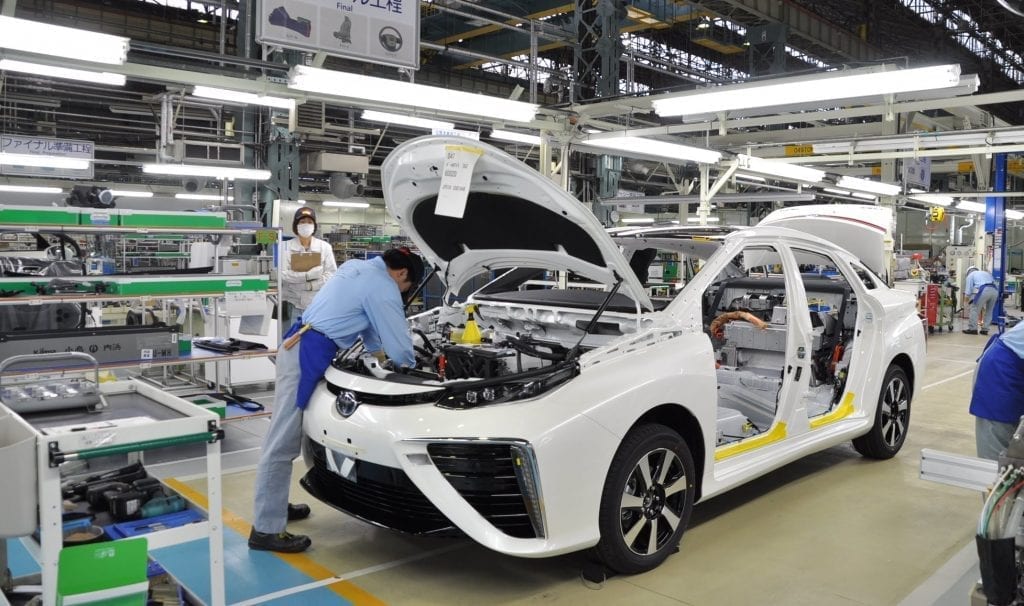
When it comes to the future of the internal combustion engine, Toyota has long been on the cutting edge. Consider how the company went out early and successfully with the Prius hybrid line of vehicles and how it has come to define the category with the largest market share by far of any hybrid model.
Now, Seigo Kuzumaki, Toyota’s head of advanced R&D and engineering, is forecasting that the internal combustion engine will be dead as the principal form of vehicle power by 2050 and will power only about 10% of new vehicles as part of a hybrid system.
The impact on the environment will be profound. Kuzumaki says the reduction in emissions, compared with cars in 2010, will be 90%. Toyota’s technology plan coincides with growing policy making by governments. Last July, for example, United Kingdom Environmental Secretary Michael Gove sad that the sale of new 100% internal-combustion vehicles will be banned in his country by 2040.
That position differs dramatically from the espoused position of the current U.S. administration, which, in keeping with the Republican political party, continues to deny the impact of human-generated carbon emissions on climate change. The chief reason for that recalcitrance is the fear of carbon taxes on businesses, and the lack of cooperation on extensive environmental standards by other big industrial countries like China and India.
In the current tax legislation being drafted in the U.S. House of Representatives, there is a call, for example, to end tax incentives for EVs. “[This bill] would fully end the tax incentives for electric vehicles at the end of this year. That’s a shortsighted policy that will increase pollution and undermine an important and growing industry,” according to the Union of Concerned Scientists (UCS).
Toyota is off to a huge start in the production of electric vehicles, producing some 43% of all electric vehicles globally. It has sold more than 11 million Prius brand hybrid and EV vehicles worldwide thus far.
By 2020, Toyota plans to introduce a new family of EVs, which are expected to have a range of around 300 miles—the gold standard for consumer acceptance of EV vehicles.
Toyota is far from the only company making heavy investments in EVs. GM, Ford, Nissan, Volkswagen, Honda and luxury makes like Mercedes, BMW and Audi are all making heavy investments. What remains to be seen is how changing governments will set new standards, and at what pace. In the U.S., the Trump administration, for example, is trying to roll back standards set by the Obama administration that proceeded it.
And consumer tastes and preferences are an issue. Toyota and the other companies can bring out all the EVs they want. But it will take consistency of government policy to allow industry to make the appropriate investments required to meet the level of sales being predicted in the next few decades.
“The progress of our growing electric vehicle market [can’t be allowed to] stall, because America will fall behind other countries that recognize how critical this technology is to the future of transportation,” says Don Anair, deputy director of the Clean Vehicles program at the UCS.

